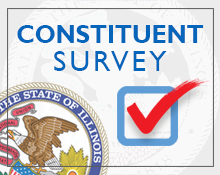
SPRINGFIELD – State Senator Mattie Hunter (D-Chicago) advanced legislation out of the Senate Public Health committee Tuesday that would take a multipronged approach to fighting sickle cell disease that includes new funding and programs for educational materials, research, and treatment of the condition affecting roughly 3500 people in Illinois.
“The goal here is to curb the deep social impact and mortality rate of sickle cell disease,” Hunter said. “We know it tends to affect underserved communities, who consistently lag behind when it comes to access to comprehensive care and preventative treatment. This is a meaningful step toward closing that gap for future generations of African-American children.”
Senate Bill 3107 creates the Sickle Cell Prevention, Care and Treatment Program under the Illinois Department of Healthcare and Family Services. The program is designed to expand efforts and resources for the prevention, care and treatment of sickle cell disease, including an educational outreach campaign.
The program would provide the following:
- Increased access to health care and pain management therapies for individuals with sickle cell disease with services provided either directly by HFS or indirectly through a contract with health care providers, municipal health departments, or community-based organizations;
- Establishment of additional sickle cell infusion centers;
- Counseling to any individual, at no cost, concerning sickle cell diseases, sickle cell traits, and the characteristics, symptoms, and treatment of the disease with services provided either directly by HFS or indirectly through a contract with health care providers, municipal health departments, or community-based organizations; and
- The development of a sickle cell disease educational outreach program geared toward medical residents, immigrants, schools and universities, and businesses.
The measure also directs HFS to perform a study with assistance from the Center for Minority Health Services and representatives from healthcare providers and community-based organizations to determine the following:
- The prevalence, by geographic location, of sickle cell trait carriers and individuals diagnosed with sickle cell disease in Illinois;
- The location and capacity of treatment centers, clinics, community-based social service organizations and medical specialists for the treatment of sickle cell disease and sickle cell trait carriers;
- The underserved areas of Illinois for treatment of sickle cell disease; and
- Recommendations for actions to address any shortcomings in the state regarding sickle cell disease.
The sickle cel train an inherited blood disorder that affects approximately 8 percent of African-Americans. In order to develop sickle cell disease, both parents must possess the sickle cell trait or have the sickle disease.



